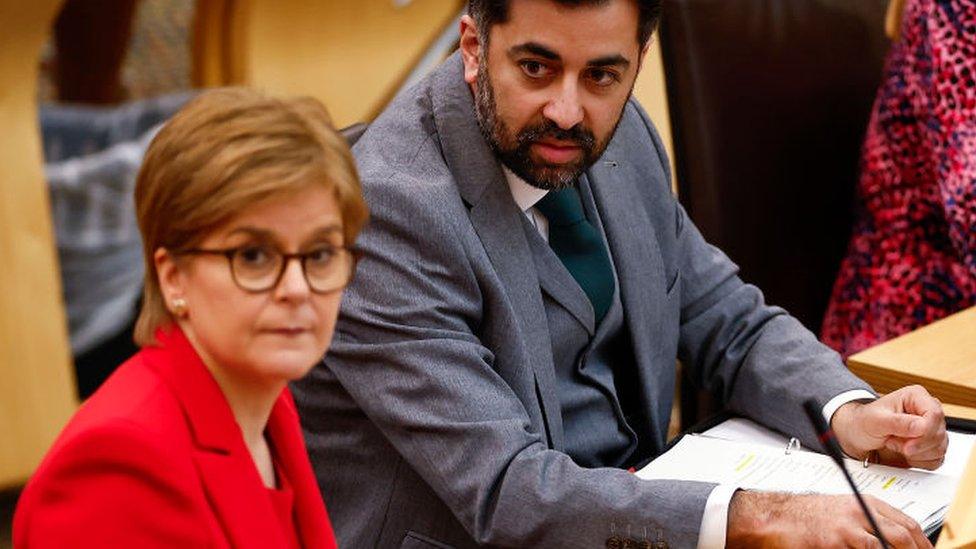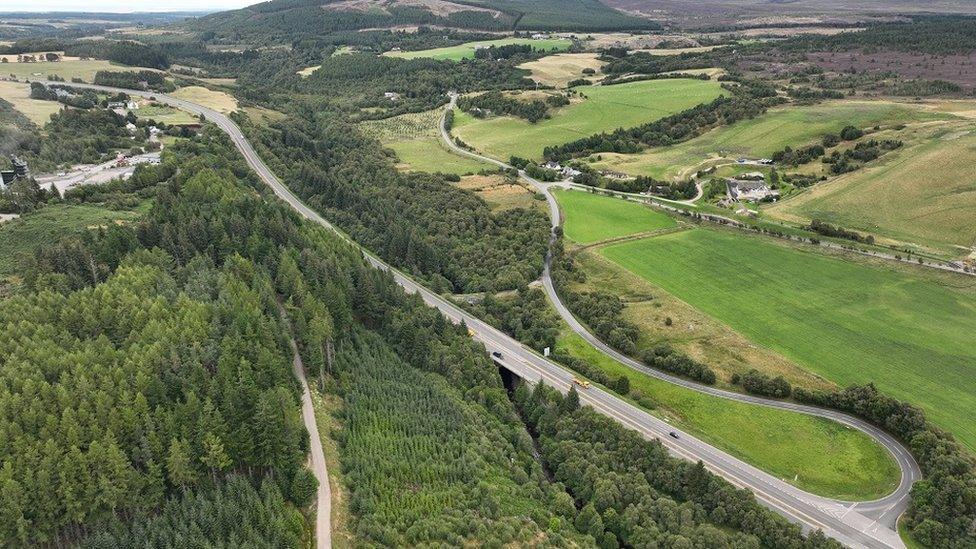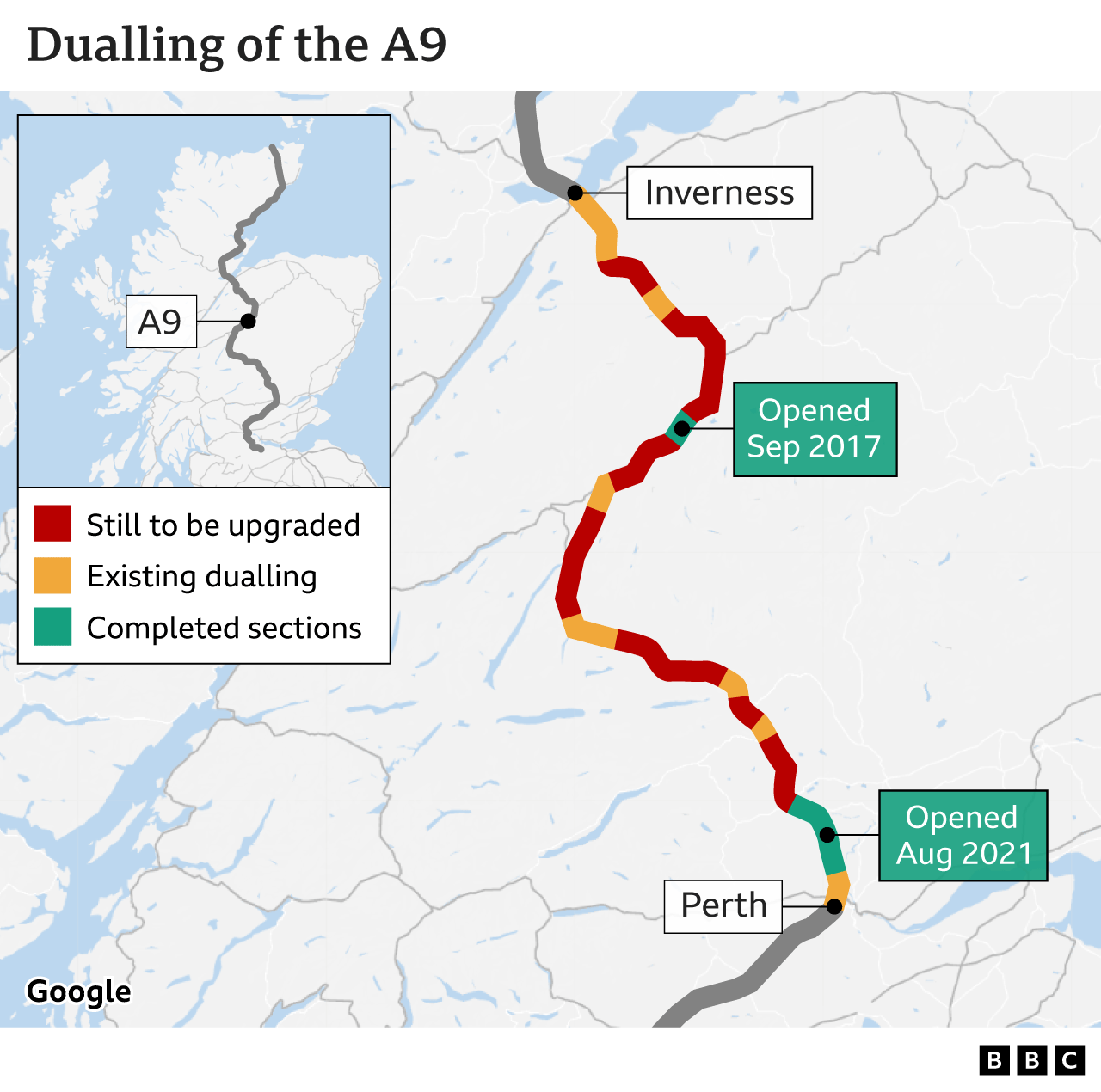Yousaf and Sturgeon asked for A9 dualling evidence
- Published

Nicola Sturgeon and Humza Yousaf could asked to give evidence in person on the A9 project
MSPs have asked First Minister Humza Yousaf and former FM Nicola Sturgeon for details of what advice they received on work to dual the A9.
The SNP made a commitment in 2011 to upgrade Scotland's longest trunk road between Inverness and Perth by 2025.
In February, then Transport Minister Jenny Gilruth said this date would be missed.
Mr Yousaf and Ms Sturgeon had responsibility for roads during their ministerial careers.
Holyrood's citizen participation and public petitions committee has been gathering evidence on the road-building project, and delays to completing it.
It has asked several former ministers for written evidence, including Mr Yousaf and Ms Sturgeon who might also be invited to give evidence in person at a later date.
The committee has also asked Transport Scotland for documents setting out what advice it gave ministers.

The A9 is Scotland's longest trunk road
Last month, a former minister told the committee that suggestions it could take until 2050 to complete work to dual the A9 between Inverness and Perth were "totally unacceptable".
Alex Neil had responsibility for roads in 2011 when the SNP made a commitment to upgrade more than 80 miles of single carriageway.
He said transport officials at the time assured him the project could be completed by 2025.
Over the last 10 years, work has been completed on two sections, totalling 11 miles of road - but about 77 miles remains to be dualled.



The Scottish government said Brexit, the Covid pandemic and the war in Ukraine were factors in causing delays.
Committee convener Jackson Carlaw MSP said: "Following the evidence from Alex Neil, we've already heard that finishing the A9 dualling project 25 years late is 'unacceptable' and it's clear that lessons need to be learned.
"This is important, not only to support completion of the A9 by the earliest possible date, but also to understand what went wrong and how mistakes can be avoided in the future."
- Published4 October 2023

- Published14 June 2023
